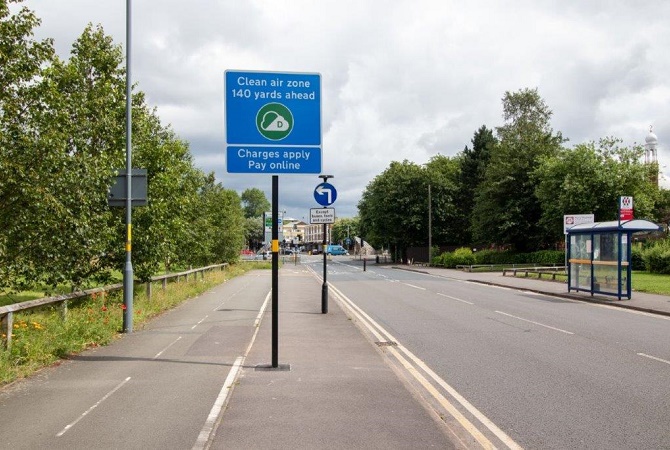
Photo: Birmingham City Council
Birmingham launches fund backed by Clean Air Zone revenue
01 June 2023
by Sarah Wray
A new funding programme has been set up to support initiatives that help improve air quality in Birmingham.
The Brum Breathes Fund has been launched by the City Council on the second anniversary of Birmingham’s Clean Air Zone and is funded by revenues generated from the scheme. It will provide single-member council wards with up to £20,000 (US$24,850) per year and two-member wards with up to £40,000 per year each for the next two years. In total, just over £4 million of funding is available to the end of March 2025.
Applications to the Fund will need to meet specific criteria such as promoting the benefits of cleaner air, supporting active travel and public transport use, or encouraging a greater shift towards zero-emissions travel or infrastructure. Applications will also need the support of the local Councillor and local Ward forums, and should align with the priorities of the local Ward action plan.
Councillor Liz Clements, Cabinet Member for Transport at Birmingham City Council, said: “We’re committed to helping our residents to achieve their full potential by improving the quality of the air they breathe. The Brum Breathes Fund will provide support to local councillors and community groups to improve air quality in every corner of the city.
“Through the fund, we’re looking to invest in projects such as cycle racks, school traffic exclusion plans, sustainable transport measures and a range of other great ideas for delivering the benefits of clean air to everyone.”
Investments
Birmingham’s Clean Air Zone launched in June 2021 and is a type ‘D’ Zone, including most vehicle categories except for motorcycles.
Other UK cities to introduce a Clean Air Zone include Bath, Portsmouth, Bristol, Bradford, Sheffield and Newcastle.
Birmingham City Council said that since the launch of the Clean Air Zone, the percentage of chargeable vehicles entering the zone has dropped from 15.2 percent to 6.6 percent in March 2023, highlighting that “a significant number of people have changed their behaviours as a result of its introduction, helping to improve air quality in the city.”
The Clean Air Zone generates revenues from two sources: a daily fee for vehicles that do not meet the emission standards and penalty charges for non-payment of the correct daily fee within the 13-day payment window.
All revenues generated by the scheme have to be used to cover the operation of the scheme and all net surplus revenues must be reinvested in local transport-related policies.
The council reports that to date, over £52 million of net surplus revenues have been allocated to projects such as a trial of hydrogen buses, upgrades to the university train station and improvements to stations on the Camp Hill line, Cross-City Bus scheme projects, expansion of the Car Free School Streets programme, and development of the next phase of the Birmingham Cycle Revolution scheme.








